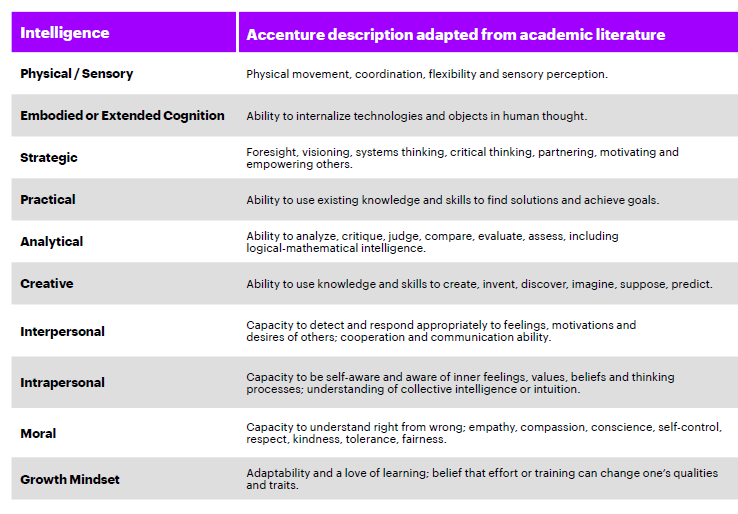We are in the heart of summer in San Francisco. And, as the song says, “School’s out for summer.” Everywhere I turn, I see children happy to be having new adventures.
As a former CHRO and current head of talent and organization consulting for a large global firm, it’s not lost on me that these children will soon be in the workforce many of us lead. Most of them will hold jobs that don’t exist today, jobs many of us can’t yet imagine because the field for them hasn’t even been created.
I see more companies, social entrepreneurs and nonprofits coming together in ecosystems designed to ensure the future of work–for our organizations and our people–is a successful one. As HR leaders, we need to move beyond simply planning for the next wave of necessary skilling for our workers. We need to hack the future of talent. To ensure our current and future workforces are gainfully employed in a digital world, we need to think differently about developing lifelong learners with transferable skills. A number of top-notch organizations are doing so already, but this challenge requires critical mass.
We’ve all heard the statistics about job displacement due to automation. Fewer of us are aware that the same type of innovation can actually create new roles–more jobs than are being displaced. Let me say that again: While 75 million jobs will be displaced worldwide through automation between 2018 and 2022, as many as 133 million new roles could be created.
Research from the Aspen Institute shows those new roles will be highly human, meaning they require types of intelligence and skills only humans can bring to the table. As humans work more with intelligent machines, different skills are required to create a more innovative, productive future. Ten types of intelligence are moving to the forefront as essential for our future workforce:
The question for us, as workforce leaders, is: Are we hiring, training and skilling for these areas? Currently, roughly two-thirds of workers feel they are left to develop their own skills to work with intelligent machines and most say they wish their company would do more to help.
The good news is, some companies already are.
Unreasonable is one of the organizations determined to help create new roles for human workers. It helps social entrepreneurs solve large global issues, partnering growth-stage companies with the people who can help them. Unreasonable has turned its attention to the future of work; thus was born Unreasonable Future, an effort to change the very nature of employment. Most CHROs and CEOs I talk to are all too aware that talent deficit has become a board-level issue. And yet, they grapple with how to solve the problem.
That’s where Unreasonable Future comes in. It’s creating an ecosystem of investors, policymakers, executives and thought leaders to scale efforts to create the new future of work that will provide jobs for our next generation–and ensure they’re skilled to fill those jobs. This phenomenal group is ensuring youth, underserved populations and sustainable businesses thrive in this century.
Unreasonable Future is not just another corporate accelerator. It focuses on marrying growth-stage companies with the ecosystem that can help them leapfrog their trajectory, solving talent issues faster and more effectively. Unreasonable Future’s inaugural cohort of growth-stage companies–just 15 of them–have on average:
- Raised more than $10 million in financing
- Generated more than $10 million in revenue
- Supported more than 4,800 jobs
- Reached more than 7 million students
- Placed more than half a million jobs
The Aspen Institute is also helping to change the future of work through its Economic Opportunities Program, working with policymakers, labor leaders, educators, businesses and more. It advances strategies, policies and ideas to help low- and moderate-income people thrive in a changing economy. It focuses not just on job creation, but the creation of quality jobs–sustainable work that engages and fulfills people.
Lest I sound like a commercial for these efforts, I realize they are a terrific start, not a panacea. Part of what we need to do as leaders is ensure our workforces are skilled, filled and engaged. Regardless of the organization your company chooses to work with, it’s forging an action-based ecosystem that matters. And the time really is now. The next gen will be at work before we know it.
As Daniel Epstein, Unreasonable’s founder and CEO, puts it: “If we do things the way we have traditionally, we will get what we’ve gotten traditionally. We need to break free from the mold, as leaders, to challenge our own status-quo thinking.”
I can attest to how invigorating it is to see change happen out of the box. Bringing equality and opportunity to a larger global group, filling our workforces with excited new talent and reenergizing our current workforces for new skills–that’s why many of us got into this business of human resources.
Let’s disrupt ourselves. Let’s get back to beginner’s mind. Lifelong learning is the key to our workforces’ longevity. And I’m reminding myself to stay in that sweet spot. It’s making me–and my team–more innovative already.


